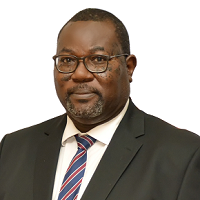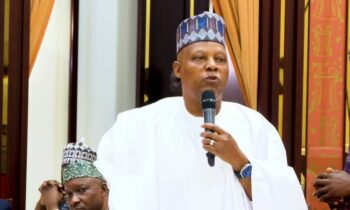Stakeholders in the oil and gas industry have asked the incoming administration to take a critical look at the issues of security, corruption, regulation, and find ways of reducing the adverse effect they have on the economy.
They believe that for the country and the industry to achieve the desired reforms or changes that would positively affect the industry,some hard decisions must be made by the incoming administration.
According to them, Nigeria is a very complex country, and the changes that will produce positive results in moving forward have to be drastic, firm and decisive without sentiments to the tribal and ethnic sentiments that have been prevalent in governance.
New governments they said usually start with say 7 or 8-point agenda, and end of the day they are so overwhelmed or distracted that very little is achieved as a measure of success.
According to Dr. Eddy Wiknna, former external relations manager, Shell Nigeria Exploration and Production Company, (SNEPCO) he said: “To me, there are two key areas the government need to focus on, and these have long-term impact on the oil and gas industry. These are Security and Corruption. If these are addressed quickly, the desired boost in the economy will result.”
He listed issues that have largely affected sustained growth in the oil and gas industry to be: Security in areas of operations in the field, increase in crude oil theft from pipeline sabotage, lack of transparency driven by corrupt practices and corruption. Inability to control the continued operations and growth of artisanal refineries and the challenges and difficulties to secure funding from external lenders and investors.
The things mentioned in the list above are not exhaustive but are mostly enabled largely due to insecurity and corruption in the operating environment.
He said the cost of operations in Nigeria when compared with global indices is disproportionately higher and this is the direct consequence of insecurity and corruption.
“Government should further consolidate on the benefits of the PIA and ensure the rules and regulations are enforced without bias.”
The former Shell boss stated that it is indeed necessary to create a fiscally stable and secure environment to attract foreign investment and encourage things like:
- More in-country refining of produced crude to reduce importation of fuels.
- Establishment of more downstream petrochemical industries to create jobs.
- Be more transparent in the execution of bidding processes for oil blocks.
- Continue to support the growth of local content within the context of applicable laws.
- Encourage governments of oil-producing states to take equity stake in operating companies.
“Change is indeed desired and necessary for Nigeria to regain its image in the global space, as an attractive destination for investment and good business, and tourism, where peace and security can be enjoyed.”
Also speaking, Abiola Ajayi, managing director of Energy and Mineral Resources Limited, a well-rounded Geologist with over 30 years of broad-based geoscience experience, said: “Pertaining to the extractive sector, the Federal Government should just focus more on honing its regulatory skills and divest its interest in the sector, so that it will in both short and long term provide additional revenue for the country.
He said that the government should let proven private-sector players run the industry.
The incoming administration he said, should quickly approve the ExxonMobil, Shell, Chevron and Totals divestment plans, and make the Nigerian National Petroleum Company be more private sector driven and remove any regulatory function from it.
“NNPC should raise capital and compete like any other private company and not continue to rely on sovereign guarantees to get funding
He stated further that the government that will take over from May 29, 2023 should also open the country for more business and investment, saying that sectors like aviation, shipping, ports, Power, Railways should be more open to investor participation by removal of restrictive monopolistic legislation.
“The country desperately needs more foreign investment inflows. Lastly, they should gradually phase out energy subsidies and harmonize the forex window”
Olusola Bello




